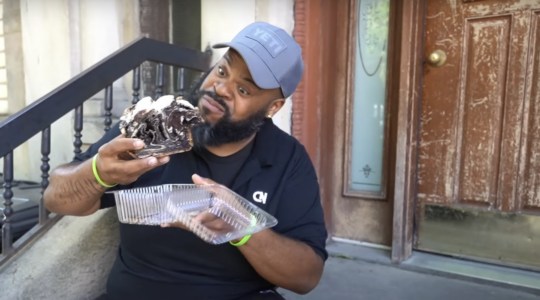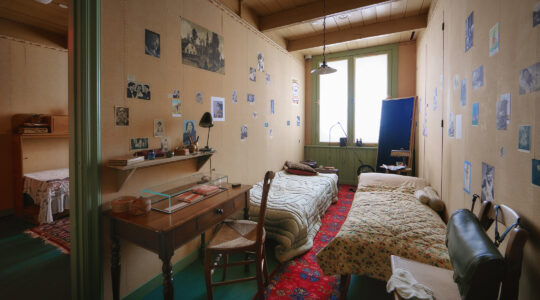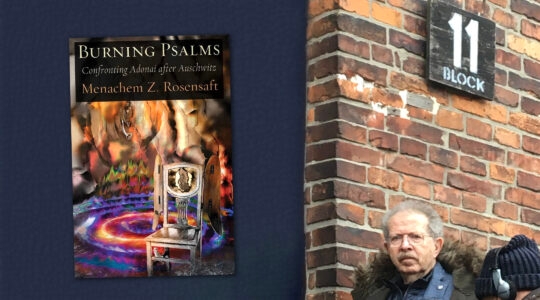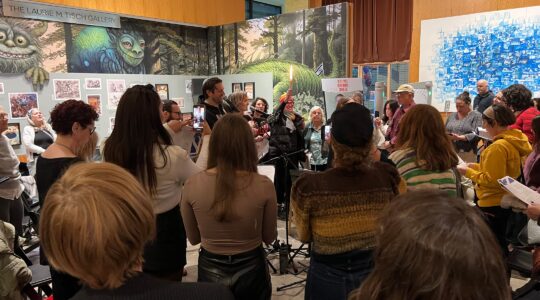In a small office of a Jewish day camp in Rockland County’s Nyack, two counselors, one from Israel and one from the United States, are comparing notes on a recent morning about the tone of political discussions in their respective countries.
It’s getting worse in both places, they agree.
Yahal Halevi, 18, from Tel Aviv, describes the Shabbat meals his family hosted in the weeks before Israel’s national elections earlier this year. His liberal immediate family and relatives with more conservative leanings disagreed, in hostile terms, about their preferences in the upcoming vote. They were not Shabbats of peace.
Sitting next to him at camp, Julie Kupferman, also 18, from New Jersey, told a similar story. She said she’s heard of families divided by political disagreements since the 2016 presidential election. Those disagreements, between supporters and detractors of President Trump, have also turned up at some families’ Shabbat dinners, she said.
Halevi and Kupferman learned this summer how to change the tenor of such political discussions, how to disagree without being disagreeable.
The two teens, budding political activists, are among a small group of counselors and campers at Camp Ramah who took part in a “Civic Engagement Initiative.” Designed by a rabbi and led by a professor, it was a pilot project designed to teach about civics and civility.
A few evenings a week, the campers and counselors gathered in a wood-paneled meeting room, sitting across a long folding table from Eitan Hersh, associate professor of American politics at Tufts University, who led them in discussions of the growing incivility they have witnessed in recent years, and how they can improve the interpersonal atmosphere. Talk “without being judgmental,” Hersh told the teens. “Real political power comes from personal relationships. It comes through trust.”
The professor offered hands-on guidance on ways his summer students can become leaders in causes that already excite them, like the environment and campus-based issues.
The theme of the initiative is “a very Jewish idea … deeply consistent with Jewish practice,” like a yeshiva’s traditional learning partner chavruta system of studying, says Rabbi Ami Hersh, Professor Hersh’s brother. The director of the Nyack camp, Rabbi Hersh came up with the idea for the civics initiative in response to the increasingly belligerent “political climate” in the U.S., in which the 2020 presidential election season is already underway.
The monthlong project’s emphasis was on local government — showing the participants how to make a difference, in whatever issues motivate them, at the grassroots level, in a nonpartisan, nonthreatening way. The participants learn, Rabbi Hersh says, to tell personal stories that illustrate their wider, political goals. And to “actively listen.” Really listen to another person, “not just prove a point.”
To illustrate that type of action and interaction, Professor Hersh took the campers to the meeting of a local zoning board to see government at work.
The initiative’s tacit message: before you can change the world, or your country, you have to learn to be effective at a smaller, micro level. “How do you do this locally?” is the question that the project asks, Rabbi Hersh says — how do you make a difference? How do you do it in an authentically Jewish way?
Rabbi Hersh had Rabbi Rebecca Rosenthal, an advocate of civic engagement who serves as director of youth and family education at Central Synagogue in Manhattan, develop the Jewish textual sources for the initiative. “It is our Jewish obligation to be involved in our world and we are providing support and a framework for helping the counselors do this work,” Rabbi Rosenthal says.
The initiative’s participants were encouraged to develop a civics-related project once they return to their home communities.
Kupferman will develop hers at Tufts, where she is a sophomore. Halevi will develop his in the Israeli Army, which he will join in November.
And both, they said, will strive for civility at Shabbat meals.
The New York Jewish Week brings you the stories behind the headlines, keeping you connected to Jewish life in New York. Help sustain the reporting you trust by donating today.




